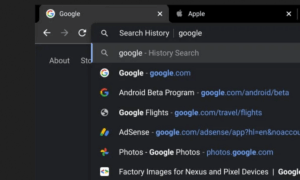[adrotate group=“15”]
A new analysis from SparkToro, a website that lets users “instantly discover what your audience reads, watches, listens to, and follows”, shows that in 2020, as much as 65% of google searches ended without users having to click through to other websites. The blog post from the “Audience Intelligence” platform claims that during the entire duration of last year, 64.82% of searches on Google done using a pc and a smartphone ended in the search results without clicking to another domain.
Numbers don’t lie
These are called zero-click searches and happen when the search results on the first page provide the answer to what a user was looking for without even requiring them to leave the search engine results page. While this does save a lot of time as far as users are concerned, it also proves to be an advantage for the search engine itself, in this case, Google, because it succeeds in keeping the users on the Google page rather than sending them to a third-party website. This is one of the major concerns of some die-hard Google critics, since this trend can result in a massive revenue and leads loss for third-party sites and indirectly make everyone one of Google’s competitors or, as SparkToro CEO Rand Fishkin called it, an “increasing click cannibalization by Google.” This is something not that far from the truth considering the $32.6 billion in revenue from Google’s advertising business in the fourth quarter of 2020.
The provided information was compiled by Fishkin with new data from the traffic check website SimilarWeb, in a follow-up from the previous 2019 post that was written based on numbers from the now-defunct clickstream data company, Jumpshot. Back then, Fishkin’s published research suggested that half of Google searches ended without a click, and from those that did send users to other sites, 6% of them were to its own websites, such as YouTube, Google Maps, Android, or other subdomains of Google.com. Furthermore, in the first quarter of 2019, Google directed almost 12% of all search clicks back to properties owned by Alphabet, the parent company of Google.
Google is going to set the record straight
Truth or not, the report did provoke a reaction from Google, who published an official response on Wednesday, where it dismisses the research in question and provides their version as well as “important context about this misleading claim,” in order to “set the record straight.”
“This week, we saw some discussion about a claim that the majority of searches on Google end without someone clicking off to a website — or what some have called “zero-click” searches,” Danny Sullivan, Google’s Public Liaison for Search, wrote. “As practitioners across the search industry have noted, this claim relies on flawed methodology that misunderstands how people use Search. In reality, Google Search sends billions of clicks to websites every day, and we’ve sent more traffic to the open web every year since Google was first created. And beyond just traffic, we also connect people with businesses in a wide variety of ways through Search, such as enabling a phone call to a business.”
The zero-click search problem is likely to rise even more
Fishkin, however, disagrees: ”In the last three years, Google’s been the overwhelming beneficiary of increasing worldwide search volume,” he noted. “And as the pandemic takes more people off their laptops and desktops and puts them back on their mobile devices, the zero-click search problem is likely to rise even more.”
This is not the first time Google was accused of using its search engine to gain the upper hand over its competitors. In a letter sent to Margrethe Vestager, the Executive Vice-President and Commissioner for Competition, more than 130 travel companies, including big names such as booking.com TripAdvisor, Expedia, and Trivago, asked the European Commission to address Google’s practice of presenting its own services in the general search results and “enforce its 2017 abuse of dominance decision.” The letter claims that Google “does not compete fairly” and accuses the tech giant of ”leveraging its unassailable dominance in general Internet search – to gain a competitive head start and quickly gain market shares.”
Follow TechTheLead on Google News to get the news first.

























